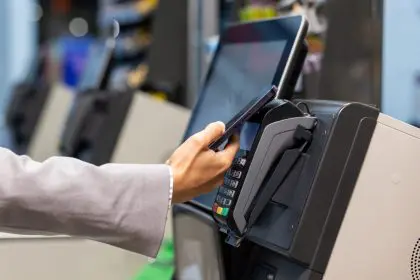In an era where digital transactions and credit cards dominate, the humble practice of saving loose change may seem outdated. However, this simple habit can play a significant role in shaping your financial future. By accumulating small amounts of money regularly, you can develop a mindset of saving, build an emergency fund and even contribute to long-term financial goals. In this article, we will explore the various benefits of saving loose change and how this practice can positively impact your financial well-being.
Developing a saving mindset
Saving loose change fosters a habit of saving, which is essential for financial stability. When you consciously put aside small amounts of money, you cultivate a mindset that values saving over spending. This mindset shift is crucial for developing disciplined financial habits that can lead to significant savings over time. By making saving a regular part of your routine, you learn to prioritize your financial goals and become more mindful of your spending habits.
Building an emergency fund
One of the most practical benefits of saving loose change is the ability to build an emergency fund. Unexpected expenses — such as medical bills, car repairs or home maintenance — can arise at any time. Having a reserve of money set aside can help you navigate these financial challenges without resorting to credit cards or loans. Over time, the small amounts of loose change you save can add up to a substantial emergency fund, providing you with a financial safety net.
Contributing to long-term financial goals
In addition to short-term benefits, saving loose change can also contribute to your long-term financial goals. Whether you are saving for a down payment on a house, planning for retirement or funding your child’s education, every little bit helps. By consistently saving loose change, you can make steady progress towards these goals. The key is to view this practice as a supplement to your overall savings strategy, allowing you to maximize your financial resources.
Encouraging financial awareness
Saving loose change encourages you to become more aware of your finances. When you regularly set aside money, you are more likely to track your spending and identify areas where you can cut costs. This increased financial awareness can lead to better budgeting and more informed financial decisions. By paying attention to the small details, you can gain greater control over your overall financial picture.
Teaching children about money
Saving loose change can also serve as a valuable teaching tool for children. By involving them in the process, you can help them develop good saving habits from an early age. Encourage your children to collect and save their own loose change, and explain the importance of setting financial goals. This hands-on approach to financial education can instill a sense of responsibility and help children understand the value of money.
Utilizing change-saving tools
There are various tools and methods available to help you save loose change more effectively. Coin jars, piggy banks and digital apps are popular options. Many banks offer programs that round up your purchases to the nearest dollar and transfer the difference to your savings account. These tools make it easy to save small amounts of money without much effort. By taking advantage of these resources, you can streamline the process and ensure that your loose change is put to good use.
Reducing impulse spending
Another benefit of saving loose change is that it can help reduce impulse spending. When you consciously set aside small amounts of money, you are less likely to spend it frivolously. This practice can help you develop greater self-control and make more deliberate spending decisions. By reducing impulse purchases, you can save more money and achieve your financial goals more quickly.
Maximizing interest and investment opportunities
Over time, the loose change you save can be invested or placed in interest-bearing accounts to maximize your returns. Even small amounts of money can grow significantly when invested wisely. By saving loose change and eventually transferring it to an investment account, you can take advantage of compound interest and increase your overall wealth. This approach can help you build a more secure financial future and achieve long-term financial success.
The power of saving loose change
Saving loose change is a simple yet powerful practice that can have a profound impact on your financial future. By developing a saving mindset, you instill the discipline needed to prioritize financial goals over impulsive spending. Building an emergency fund from your saved change provides a crucial financial safety net, helping you navigate unexpected expenses without falling into debt. Contributing your loose change towards long-term goals — such as a down payment on a house or a retirement fund — can make a significant difference over time, illustrating that even small amounts can accumulate into substantial savings.
Additionally, the habit of saving loose change fosters financial awareness, prompting you to be more mindful of your spending and saving habits. This increased awareness can lead to better budgeting and more informed financial decisions, enhancing your overall financial health. Teaching children to save loose change also imparts valuable financial lessons, helping them understand the importance of saving and the value of money from an early age.
With the right tools and strategies, such as coin jars, piggy banks or digital apps that round up purchases, saving loose change becomes effortless and effective. This small yet consistent habit can lead to significant financial benefits, paving the way for a more secure and prosperous financial future. So, start saving your loose change today and take the first step towards a brighter financial future.
This story was created using AI technology.










